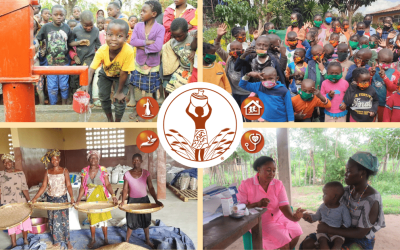Click to view Mozambique’s information
Click to view Zimbabwe’s information

Mozambiqe – Country Information
Capital:
Maputo
History:
A Portuguese colony for nearly 500 years, Mozambique finally gained independence in 1975. A civil war ensued immediately and lasted until the mid 1990s, ruing any chance of a post-independence flourishing of culture or economy. The ruling Marxist party (and one of the contesting sides in the civil war) had little economic policy success during that time, but since a switch towards more a market oriented ideology in the late 1980s growth has been impressive.
A recent peaceful handover of power gives hope that the days of internal strife are behind Mozambique, and its economic gains has led many to consider it a model success story for aid in sub-Saharan Africa.
Climate:
Mostly tropical; some subtropical
People:
Population – 22,061,451
Median Age – 17.5 years
Population Growth Rate – 1.797%
Life Expectancy – 41.37 years
Literacy – 47.8%
Average Years of Schooling – 9 years (male), 7 years (female)
Urban population – 37%
Languages/Ethnicities/Religions:
Portuguese is the sole official language. Though spoken by only 8.8% of the population natively, 27-40% of the population speak it as a second language.
Emakhuwa 26.1%, Xichangana 11.3%, Elomwe 7.6%, Cisena 6.8%, Echuwabo 5.8%, other Mozambican languages 32%, other foreign languages 0.3%, unspecified 1.3%
African 99.66% (Makhuwa, Tsonga, Lomwe, Sena, and others), Europeans 0.06%, Euro-Africans 0.2%, Indians 0.08%
Catholic 23.8%, Muslim 17.8%, Zionist Christian 17.5%, other 17.8%, none 23.1%
Economy:
GDP per Capita – $900
GDP Composition by Sector:
Agriculture: 24%
Industry: 30.6%
Services: 45.3%
Labor force – by occupation:
Agriculture: 81%
Industry: 6%
Services: 13%
Main Exports:
aluminum, prawns, cashews, cotton, sugar, citrus, timber; bulk electricity
What it is known for:
• Eco-tourism
• Beaches
BWA’s Focus Areas in Mozambique:
• Education
• Women’s Programs
• Food Self-Sufficiency
• Health Care
Zimbabwe – Country Information
 Capital:
Capital:
Harare
History:
A series of Shona and later Ndebele empires dominated in the millennium prior to the onset of British colonialism, which began in the 1880s. With most other African nations independent by the mid 1960s, Ian Smith, a white Zimbabwean, unilaterally declared independence from the UK in 1965. He set up a white supremacist government that was effective in maintain economic production (mostly based on agriculture), but bore the brunt of a protracted guerrilla war and economic sanctions.
In 1979, Smith signed a peace treaty with the main rebel movements in the United Kingdom, which allowed for a quick transition to majority rule. However, Robert Mugabe, one of the leaders of the independence movement, has been president since independence and is widely condemned for election rigging, organizing political violence, and overseeing the collapse of the economy in the last decade. The economic collapse is closely related to dispute of land ownership, with an ill-fated attempt to redistribute land away from the white owners (who constitute a very small part of the population but own almost all of the best land) resulting in the fall-off in agricultural productivity. Widespread violence surrounding the disputed 2008 presidential elections has led to a coalition government and a more stable political situation. A new constitution was approved by referendum in March 2013, and new elections are scheduled for later this spring.
Climate:
Tropical
People:
Population – 11,651,858
Median Age – 17.8 years
Population Growth Percentage – 2.954%
Life Expectancy – 47.55 years
Literacy – 90.7%
Average Number of Years of Schooling – 9 years (male and female)
Urban population – 37%
Languages/Ethnicities/Religions:
English is the sole official language and widely spoken. Shona and Sindebele are officially recognized ethnic languages (though there are many others), and one or the other is spoken natively by the vast majority of the population (principally Shona, the language of the largest ethnic group).
The two largest ethnicities are Shona (82%) and Ndebele (14%). There are very small white and Asian minorities.
Mostly Christian, with much influence from traditional beliefs.
Economy:
GDP Per Capita – Less than $100 (2009 est.)
GDP Composition by Sector:
Agriculture: 19%
Industry: 23.9%
Services: 56.9% (2009 EST.)
Labor Force by Occupation:
Agriculture: 66%
Industry: 10%
Services: 24%
Main Exports:
platinum, cotton, tobacco, gold, ferroalloys, textiles/clothing
What it is known for:
Ancient ruins of Great Zimbabwe, Victoria Falls, wildlife
BWA’s Focus Areas in Zimbabwe:
Orphan Care
Women’s Literacy and Empowerment Programs
Health Care
Education



